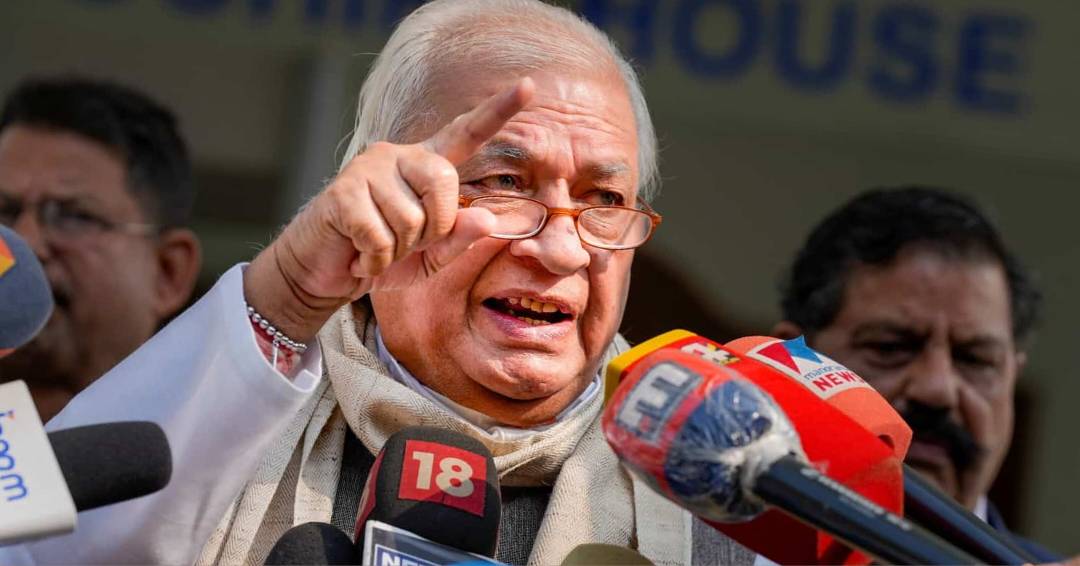
The Kerala Government is considering taking a firm stance against Governor Arif Mohammed Khan regarding his refusal to give assent to Bills passed by the Legislative Assembly.
In response to the ongoing deadlock between the government and Raj Bhavan, the state is contemplating taking the matter to court and also plans to raise the issue in public forums. Currently, six Bills remain pending before the Raj Bhavan, despite reminders from the chief minister and clarifications offered by four ministers during their visits. There are allegations that Governor Khan is withholding assent to files unrelated to policy or legal matters.
However, it’s worth noting that Governor Khan did provide assent to Bills concerning the Public Service Commission’s involvement in Waqf Board appointments and the merger of the Malappuram District Cooperative Bank with Kerala Bank back in March. Taking inspiration from Telangana’s approach, Kerala is considering following suit by approaching the Supreme Court regarding the Governor’s actions. In a similar case involving Telangana, the apex court criticized the Governor for withholding Bills, deeming it imprudent.
The pending Bills encompass various aspects, including removing the governor as chancellor of universities, increasing government representatives in search committees for appointing vice-chancellors, establishing the University Appellate Tribunal, amending the Lokayukta’s powers, and amending the Kerala Cooperative Societies Act to grant the government more control over Milma.
Governor Khan, on the other hand, is contemplating seeking consent from the Union government and the President for the three Bills pertaining to universities. He intends to seek legal advice on referring these Bills to the Centre and President, suspecting that they were passed in violation of existing norms.
The Telangana Governor, Tamilisai Soundararajan, previously withheld ten Bills passed by the Assembly. The state government approached the Supreme Court, citing a crisis resulting from the Governor’s actions. Their approach was based on the Constitutional provision allowing for recourse to the court if any fundamental rights have been violated. Only after the government had approached the Supreme Court did Governor Soundararajan provide assent to a few of the Bills.

Post Your Comments